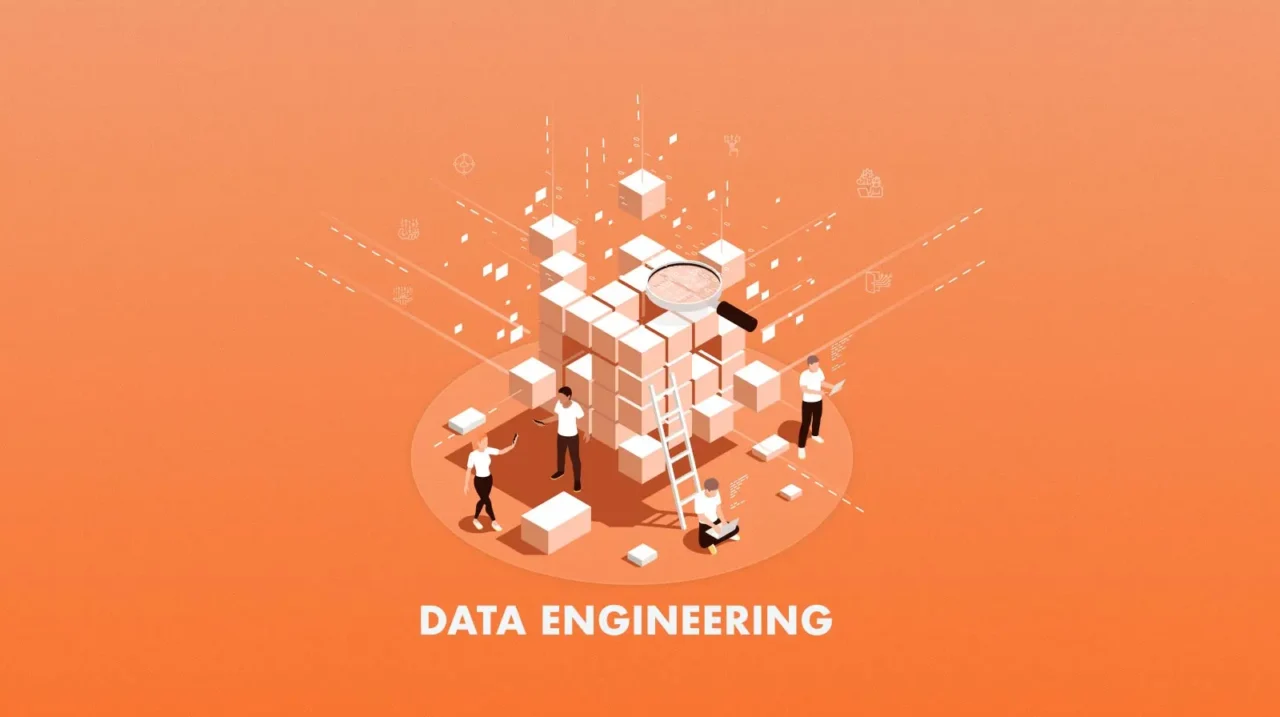Top Data Engineer Interview Questions & Answers for 2025 (Ultimate Guide)


Want to ace your next Data Engineer interview?
Practice unlimited interviews online, get instant AI-powered feedback, and build real confidence—Start for FREE now on Huru.ai 🚀
Unlocking the Data Engineer Interview: What to Expect in 2025
The demand for skilled Data Engineers has never been higher, and companies are raising the bar for technical and problem-solving abilities. Acing your next interview means mastering not just the basics, but also the practical, scenario-based, and cloud-native questions shaping the 2025 hiring landscape.
This guide compiles the most frequently asked Data Engineer interview questions and answers for 2025, combining technical depth, behavioral insights, and real-world tips. We’ll also show you how to leverage Huru.ai’s instant AI feedback to refine your answers and stand out from the crowd.

2025’s Most Asked Data Engineer Interview Questions — With Answers
Let’s dive into the key categories interviewers will test you on, including SQL, Big Data, ETL, cloud tools, and soft skills.
For each, we’ll provide sample answers and pro tips on tailoring your responses.
1. SQL & Database Fundamentals
- Q: What’s the difference between WHERE and HAVING in SQL?
A: WHERE filters rows before aggregation, while HAVING filters after aggregation (GROUP BY).
Pro Tip: Give an example using a real table—practice in Huru’s mock interviews for instant SQL feedback. - Q: How do you optimize a slow SQL query?
A: Analyze query plans, add appropriate indexes, reduce data size scanned, break complex queries, and avoid SELECT *. Use EXPLAIN and review execution metrics. - Q: Explain normalization and denormalization. When would you use each?
A: Normalization removes data redundancy for OLTP; denormalization adds redundancy for analytical speed in OLAP. Use based on workload requirements.
2. Data Modeling & Schema Design
- Q: How do you design a scalable data warehouse schema?
A: Use star or snowflake schema for clarity and efficiency. Focus on facts versus dimensions, and consider partitioning, clustering, and performance tuning. - Q: What’s slowly changing dimension (SCD)? How do you handle it?
A: SCD stores and manages changes in dimension attributes. Use Type 1 (overwrite), Type 2 (history), or Type 3 (partial history) as needed.
3. ETL Processes & Pipeline Design
- Q: What’s your approach to designing a robust ETL pipeline?
A: Focus on modular code, error handling, data validation, logging, monitoring, and scalability. Use tools like Apache Airflow, dbt, or cloud services. - Q: Describe a time you fixed a data pipeline failure.
A: Briefly explain the issue (e.g., schema drift, data volume spike), your diagnosis, and the fix (rollback, reprocessing, improved alerting).
4. Big Data Technologies & Tools
- Q: Difference between Hadoop and Spark?
A: Hadoop uses disk for batch processing; Spark uses in-memory for faster iterative workloads, streaming, and machine learning. - Q: How do you optimize a Spark job?
A: Tactics include partitioning, caching, tuning shuffle operations, and monitoring with Spark UI. Mention experience with Databricks, Delta Lake, or cloud-based Spark clusters.
5. Cloud & Real-Time Data Engineering
- Q: What cloud data services have you used? (AWS, GCP, Azure)
A: Detail experience with AWS Glue, GCP Dataflow, Azure Data Factory, Redshift, BigQuery, etc. Give a real scenario and how you chose specific tools. - Q: How do you build a real-time data pipeline?
A: Use streaming frameworks (Apache Kafka, AWS Kinesis, GCP Pub/Sub), event-driven processing, windowing, and state management; ensure fault tolerance and scalability.
6. Data Governance, Quality & Security
- Q: How do you ensure data quality?
A: Implement validation rules, automated tests, profiling, and monitoring. Document and remediate issues quickly. - Q: How do you handle data security and privacy?
A: Follow least privilege, encryption, and compliance standards (GDPR, HIPAA). Monitor access and anonymize sensitive data.
7. Behavioral & Soft Skills
- Q: What’s your typical day as a Data Engineer?
A: Discuss collaboration, prioritization, pipeline maintenance, learning new tools, and supporting analytics teams. - Q: Describe a project where you solved a business problem with data engineering.
A: Use STAR (Situation, Task, Action, Result) format for clarity and impact.
💡 Key Takeaway
Consistent, targeted interview practice is your best strategy. Use Huru’s AI-driven mock interviews to get personalized feedback and accelerate your prep for 2025’s toughest Data Engineering roles.
Scenario-Based & Coding Challenges for Data Engineers
Interviewers often test your thinking with real-world scenarios and hands-on coding questions. Here are some 2025 examples:
- Scenario: Design a streaming pipeline for real-time fraud detection.
How would you ensure low latency, data quality, and fault tolerance? - Coding: Write a SQL query to find duplicate rows in a dataset by a composite key.
- System Design: Whiteboard a scalable data lake architecture for a global e-commerce company.
- Cloud: Compare AWS Glue and GCP Dataflow for a migration project. What are the tradeoffs?
Practice coding challenges on LeetCode and try scenario-based mock interviews on Huru.ai for detailed, actionable feedback.
🛠️ Pro Tip
Showcase not just technical skills, but also your ability to communicate tradeoffs and collaborate cross-functionally. Use real-life stories from your experience and ask clarifying questions during interviews.
Interview Prep Table: Key Skills, Tools, and How to Practice
| Skill/Topic | Example Question | How to Practice |
|---|---|---|
| SQL | Write a query to calculate daily active users | Try real SQL questions on Huru.ai for instant AI feedback |
| Big Data | Explain Spark’s in-memory computing advantage | Watch videos/read docs; practice explaining on Huru.ai |
| ETL | Design a pipeline for daily sales data | Whiteboard/process scenarios with Huru’s practice sessions |
| Cloud Tools | Compare AWS Glue vs GCP Dataflow | Read cloud docs, simulate interviews on Huru |
| Behavioral | Tell me about a time you solved a data outage | Use STAR format, practice with mock interviews |
🎥 Watch: Expert Data Engineer Interview Guide (2025)
This comprehensive video covers real interview scenarios, Databricks and Spark questions, and practical prep tips for 2025:
Extra Tips: Stand Out in Your Data Engineer Interview
- Ask clarifying questions to understand requirements before answering technical scenarios.
- Show familiarity with multiple cloud and big data tools — not just one.
- Reference your experience adapting to new tech or fixing production incidents.
- Follow up with well-thought-out questions for your interviewer — about team culture, data challenges, or learning opportunities.
Want to practice these techniques? Book a mock interview on Huru.ai and get personalized, actionable feedback instantly.
Further Resources & Related Reading
- Broaden your prep with Big Data Engineer Interview Questions Process Information Effectively
- Master technical interviews for other roles with Network Engineer Interview Questions Navigate The Technical Terrain 2
- Explore Electrical Engineer Interview Questions Power Up Your Answers for broader engineering insights
- For more scenarios, see Civil Engineer Interview Questions Lay The Foundation For Your Career
About the Author
Elias Oconnor is a content writer at Huru.ai, specializing in career development, interview mastery, and AI-powered job search strategies. His mission: helping you land your dream role with confidence, clarity, and actionable insight.


 Jan 07,2023
Jan 07,2023  By Elias Oconnor
By Elias Oconnor